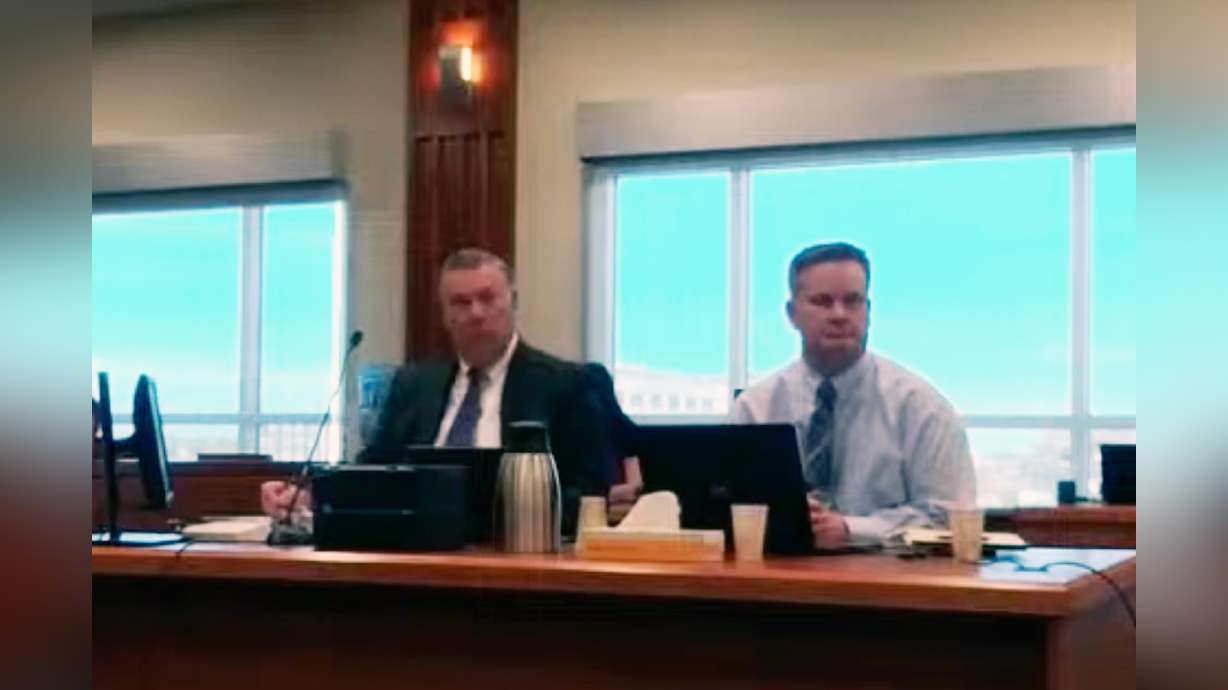Predators targeting more Utah teens with sextortion scams, FBI report says
Jan 19, 2024, 7:51 PM | Updated: Jan 20, 2024, 10:31 am
SALT LAKE CITY — Teen sextortion cases are on the rise across the nation and in Utah.
The FBI recently released new information and guidelines for parents and teens. The data shows a 20% jump in reported cases during a six-month period that ended in March 2023.
The data reflects more than 13,000 nationwide reports of online financial sextortion of teenagers, between October 2021 and November 2023. The cases include at least 20 victims who died by suicide.
According to FBI Special Agent Curtis Cox, who serves on the Violent Crimes Against Children Task Force in Salt Lake City, most victims are boys, ages 13-17, who are targeted and groomed by online predators that pose as teenage girls on social media.
Offenders trick teenagers into sending them sexually explicit pictures and then threaten to release the material if the victim doesn’t pay up.
Cox said the Salt Lake City field office gets 10-12 new cases every week for the region of Idaho, Utah and Montana.
“Teens think that if they make the payments requested that this will just go away but that actually only exasperates the problem,” Cox said. “If they initially start off by paying $100 and the kid is able to pay $100, the request then becomes $200 or $500. It eventually gets to the point where the kid is unable to satisfy the demands.”
Agents said the cases are difficult to prosecute because many incidents go unreported due to shame and fear. Also, extortionists are often overseas, in Southeast Asia and West African countries like Nigeria.
The Internet Crimes Against Children task force in Utah is seeing a similar trend, according to Michelle Bush-Upwell, an education specialist with the task force.
“Sextortion has really increased substantially since COVID hit. Students were at home, on their computers, and predators took advantage of that,” Bush-Upwell said. “We saw them really start increasing then but they have substantially increased in the last year. We have at least tripled in our cases of sextortion in the last year.”
Advocates say the strongest deterrent for predators is parental and teenage awareness.
“We think that the best remedy to solving this problem is education and the knowledge of what is happening,” Cox said. “My kids have cell phones. We do frequent checks with them. We know the pins. We review the messages sent and received, pictures. We restrict the apps that they can use.”
Some of the most popular apps for sextortion are social media platforms like Snapchat and Instagram, according to internet safety experts.
Cox and Bush-Upwall also suggested that parents keep open lines of communication with their children.
“(Teens) have fallen prey to very sophisticated criminal actors who know exactly what buttons to push to get what they want,” Cox said. “A lot of times if kids feel they are going to be judged and get in trouble with their parents they’re unlikely to report. But if parents have a good line of communication with their kids, they are more likely to report it to them immediately when it happens.
“Parents often think monitoring their kids is stepping over their boundaries but it’s not,” Bush-Upwell said. “Having that open line is really important because you’re explaining to your child that ‘I’m trying to protect you from these predators that are out there.’”
Resources for Parents
- Take it Down is a free service to help remove sexually explicit images or videos of children under 18 years old.
- Utah Internet Crimes Against Children (ICAC) Task Force- Tipline: 801-281-1211 email: utahicac@agutah.gov, https://attorneygeneral.utah.gov/initiatives/icac/
- FBI’s website with information on sextortion for parents and teenagers:
- Common Sense Media provides parents with information on how various social media platforms work.













